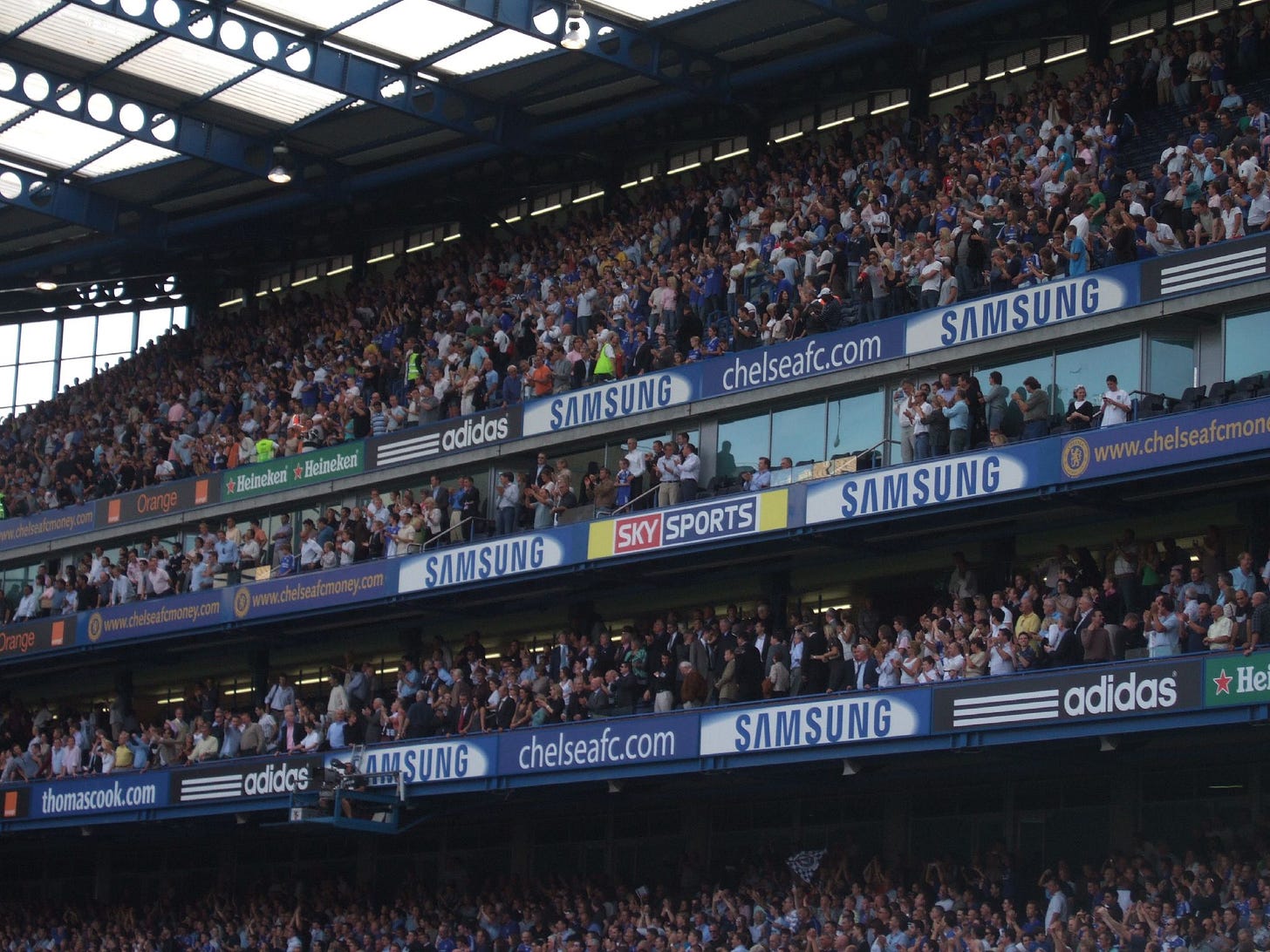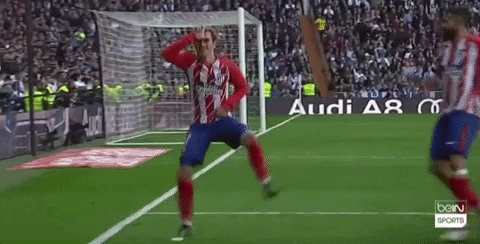UK government, media parking the bus on Abramovich's money from Chelsea sale
Chelsea fans are familiar with "parking the bus" and "possession without end product." The UK government and media seem to be working from those playbooks with Roman Abramovich's frozen money.

Mike Penrose and his patrons in the UK government have to shift into high gear, else they risk the shame of making the US government look organized and efficient. Which it is when it comes to seizing and re-distributing private assets. But
seven months after the UK government tabbed Penrose to oversee the disbursement of the £2.5 billion Todd Boehly paid in the forced sale of Chelsea FC,
four months after the only post-sale reporting or analysis by a non-It’s a Chelsea Thing outlet on the stalled funds,
six weeks after the last tweet on the topic by the only Member of Parliament who has followed up on the issue,
and three weeks after the most recent time the same MP brought it up in session,
… there is still no indication that Penrose has established a charitable body through which he will oversee the funds, let alone that any of Roman’s rubles / Boehly’s bucks have made their way to Ukraine.
This despite Penrose’s pledge to bring in “absolute experts” including “one of the world’s leading law firms [and] some of the best fund managers on the planet” to help manage the process.
Maybe the UK or Penrose should have enlisted Sam Bankman-Fried. The money definitely would have moved then. Some might even have passed through Ukraine.
Expropriate in haste, redistribute at leisure
Martyn Zeigler’s article for The Times quotes Penrose: “[W]e got the first licence issued by OFSI for the establishment of the foundation a couple of weeks ago which was an important step. We are hoping in the next few weeks to get an application into the Charity Commission.”
That was on 31 August. Since then, 11 charities have been registered with the Charity Commission that surface when you search for the word “Ukraine” in the charity name, where the charity operates, “classifications” or “objects and activities.” Penrose is not a trustee of any of them, so he either has not registered the charity or he is not a trustee of the charity that the government directed him to establish and run.
One week after Zeigler’s article, on 06 September, the only MP quoted therein, Labour MP Chris Bryant, had this exchange with Rehman Chishti, Conservative MP and then-Parliamentary Under Secretary of State at the Foreign, Commonwealth and Development Office:
Bryant: One of the people sanctioned in the UK is Roman Abramovich. His football club, Chelsea, was sold on 30 May, but the billions of pounds are sitting in his bank account because the Foreign Office still has not set up the fund to enable the money to be given to the people of Ukraine. Why is the Foreign Office taking so long, and when is it going to be sorted?
Chishti: Although I cannot comment on specific cases, I point out that measures have been taken against 1,100 individuals, including 123 oligarchs and their family members with a global net worth of £130 billion, more than 120 entities and all the subsidiaries owned by them; and against 19 Russian banks with global assets of about £940 billion—more than 80% of the Russian banking sector. In addition, acting in conjunction with partners, over 60% of Russia’s central bank’s foreign reserves have been frozen. That demonstrates our commitment to do everything we can, applying our criteria set by this Parliament, to bring these people to account.
A month after withstanding Chishti’s logorrhea, Bryant returned to the issue on 13 October:
One of my anxieties is about what happens with oligarchs’ assets that are frozen by the UK.
There is a legitimate question about whether it is right for the state to seize assets that belong to private individuals. On the whole, that is not a good thing—that is what authoritarian regimes do—but we need some clarity on how we proceed in a time of war, which is effectively where we are at the moment. I note that Abramovich’s Chelsea was sold, and the money is still sitting in his bank account because the Foreign Office still has not put in place a means of transferring it to Ukraine.
This is months in, and it is absolutely bonkers.
Let’s pause here to commend Bryant for bringing up the question of rights. Even though I’m sure he and I would quickly diverge in how we view the enforcement and application of rights - and likely how we even define the concept - he once again appears to be alone among his peers.
Two months later, on 08 November, Bryant brought the topic up again, this time with Leo Docherty, Parliamentary Undersecretary of State (Europe):
Bryant: Whatever Americans vote for today, I hope they stick with supporting Ukraine over the next few months. May I ask a question I have asked the Minister before—so I hope he knows the answer by now—about the Abramovich money? Chelsea was sold for £3.5 billion many months ago. Has that money yet got to Ukraine, and if not, why not?
Docherty: I am very pleased to be able to provide an answer. The money is still frozen in a UK bank account. The administrative work is being done and a licence is being applied for, but we hope it is on the start of its journey to Ukraine to help the people where they need help.
Pro tip: When a politician says he is very pleased to provide an answer, you can be more confident than usual that you are not going to get an answer.
Even more important than Docherty evading the crucial second part of Bryant’s question – “if not, why not?” - is Docherty saying that the license application is still in process.
Martyn Ziegler’s article quotes Mike Penrose saying they had the license, the first such license, in fact. Was Penrose overstating his progress? Is Docherty misinformed? Did OFSI or some other entity add another step to the process?
None of that came up when, perhaps because it was fresh in his mind, Docherty mentioned Chelsea a week later in response to a tangentially (at best) related question from MP Hodge Hill:
[Hill] also raised some interesting technical questions about sanctions. We are getting after not just sanctioning but seizing and ensuring that things such as the moneys from the sale of Chelsea football club get to those who need it. I am grateful for his interest.
Finally, on December 20, Bryant takes an important – yet incomplete - step in the direction of accountability.
[W]hy, many months after Abramovich’s Chelsea was sold, [is] the charity still not in place to be able to deliver £2.5 billion of that money into the rebuilding of Ukraine?
Bryant posed this question to Minister of Defence Ben Wallace, who promptly passed the buck (pound?): “I am happy to write to the sports Minister to find out that detail, as I am not across that part of the process.”
In the United States, this would be about the time that the legislature would subpoena Mike Penrose. I don’t know the equivalent procedure in the UK, but no one in government is willing or able to give a direct answer; Penrose was appointed to set up and operate the charity; and Penrose said, in late August, that they had the license and would submit the application within a “few weeks.”
UK vs. Roman Abramovich: Playing for a draw?
Roman Abramovich, Chelsea FC and Ukraine are – to large portions of the public and government – unsympathetic, despised and forgotten, respectively. The UK government would like to keep it that way, especially when the alternative is something they can’t afford after the last year: another embarrassment. Particularly not one that comes on behalf of a Russian oligarch*.
On May 31, the day Todd Boehly closed on the sale of Chelsea FC, Abramovich filed a suit with the European Union General Court over his inclusion on various sanctions list. His case appears to still be pending before the court, as I can not find any reporting or records of it being dismissed or adjudicated. The longer it goes on, in the continuing absence of any direct and recent evidence linking Abramovich to Vladimir Putin’s war, and in light of Abramovich’s early summer shuttle diplomacy, the better the odds get for Abramovich.
Another court, one under the Crown, has already made one ruling in Abramovich’s favor.
The Royal Court of Jersey froze $7 billion in assets and raided several properties linked to Abramovich on April 12. The companies who were searched challenged the search warrants on the same day. On November 9, Jersey police acknowledged that "the search warrants were obtained unlawfully" and agreed "that the search warrants should be quashed.” According to Reuters, who viewed the documents, “[t]he police also agreed to pay damages and costs, confirmed that all copies of documents seized in the searches had been destroyed and that the police would apologise to Abramovich… It was not immediately clear what impact the admission of unlawful searches would have on the $7 billion freeze.”
That’s just the sort of L the UK can’t afford right now. And there are other warning signs across the Anglosphere.
In mid-December, Canada started the process to seize a mere $26 million from one of Abramovich’s companies in Canada. Per The Guardian, Canada’s foreign minister must petition a court for asset forfeiture in order for the government to take control of the funds and then use them for “reconstruction” and “compensation” in Ukraine.
That’s a lot of bothersome due process from a country whose finance minister once giggled uncontrollably when freezing her own citizens’ personal bank accounts.
And, back to where we started, it took a 4,000 page “omnibus spending” bill for the US to slip in Congressional authorization to fully expropriate oligarch* assets and “transfer the proceeds… to the people of Ukraine.”
The current stasis may be the best possible outcome for the UK government. They got away with a lot in the spring. It doesn’t take much legislative skill or sophistry to declare an emergency and suspend a few rights, especially when the target(s) is an already unpopular member of an already unpopular Other. But as time goes on and the emergency conditions settle into being a “new normal,” governments need to at least go through the motions of due process (no, really, I am still talking about Russia-Ukraine-Abramovich). And to a limited extent in a few countries, political, judicial or societal checks and balances demand actual due process, the enforcement of rights and an abridgment of government power.
The UK government may be just competent enough to realize this, and don’t want to run the risk of a Russian – of all people, a Russian! Worse, that Russian! - having his rights upheld.
Even if it is just his right to a formal process before a predetermined outcome, anything that reminds the people of those rights and what the process is supposed to mean is a risk governments will go to great lengths to avoid.
And let’s not do what everyone else does, and forget the other party in all this: Mike Penrose. Perhaps he is the one with his foot on the brakes, and no one is telling him to get moving. Or he has simply moved on to other things and doesn’t feel like waking up this dog.
Penrose has spent the year pumping up his ESG consulting grift group, so he’s neither lacking for things to do nor income. He might not want the distraction of disbursing the Chelsea funds (presumably the fund management fees would be far less than his ESG consulting fees), so he may be happy to let the whole thing quietly go away.
Following the money is easy when it doesn’t go anywhere
On 31 May, I outlined seven points for anyone interested in following the money from the Chelsea sale. Just as well that no cares, since the money never made it past the first step:
Over any time frame – hours, days, weeks, months, years - what percentage of the sale price of Chelsea Football Club has been disbursed by the foundation? Did the foundation set up a time table for the disbursement of that amount – the foundation’s ostensible principal – and are they on track to meet that timeline?
And to think that my biggest concern at the time was that the money would mostly end up flowing to well-connected NGOs and defense contractors. Was that being naive or cynical?
Recall that, in early March, Abramovich assented to selling the club and pledged all funds to victims of the war. Had the UK government permitted that, Abramovich would have had responsibility for the most scrutinized cash flow in the world. There is zero chance the British government or media would have allowed the funds to sit quietly in Abramovich’s account for anywhere near as long as they have under government control. There would be inquiries and articles every week investigating if any of the money was flowing to Russia, and demanding to know why none was on the ground in Ukraine.
The longer this money stays in the frozen Fordstam account, the more it looks like the expropriation and forced sale of Chelsea FC was about Roman Abramovich and Chelsea first, Russia and Putin second, and Ukraine not at all.




